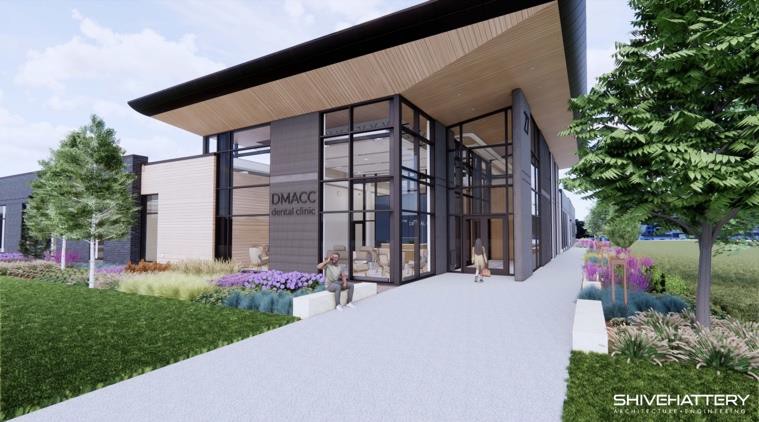Goldfinch Health helps employers guide workers through surgeries
Startup company to begin piloting approach with beta companies in Iowa

Break-room discussions often turn to the colleague or relative who did remarkably well after a surgical procedure, and just as frequently to those who didn’t and took weeks longer to recover or had serious complications.
What if surgical experiences could be consistently high-quality? That’s the vision of Goldfinch Health LLC, a new health information company with Iowa roots that’s focused on delivering best practices in common surgical procedures to employers.
A trio of entrepreneurs has launched the enterprise, which seeks to guide its clients’ employees through better surgical experiences and postoperative outcomes. By directing employers to surgeons using the best techniques, following “enhanced recovery after surgery” protocols and closely coordinating with the employer through the process, they’re able to significantly shorten recovery times and get employees back to work more quickly. The result is healthier employees and reduced health care costs.
Co-founders Brand Newland and John Greenwood had both witnessed the differences that high-quality, advanced surgical experiences made, and contrasted what happened when people they knew were exposed to outdated, lower quality surgical procedures that resulted in lengthy recovery times.
“That was our founding inspiration,” said Newland, who prior to founding Goldfinch Health was vice president of business development with OutcomesMTM, a medication therapy management company in West Des Moines. He and Greenwood, previously a surgical sales representative in Iowa City, partnered with Elliott Smith, former executive director of the Iowa Business Council, to launch a company to bring surgical best practices and coordinated after-surgery care to Iowa employers.
Aligned with large employers
The partners point to numerous research studies that support their model. For instance, a study published in JAMA Surgery, a publication of the Journal of the American Medical Association, shows that implementation of Enhanced Recovery After Surgery protocols reduced length of hospital stays by 30 percent and postsurgical complications by up to 50 percent.
However, those protocols aren’t consistently followed by all providers, which makes outcomes sporadic and variable, sometimes even within the same medical groups, Greenwood said.
“That’s in fact why we’re going to self-insured employers, because there is a business community there that does care about their bottom line, and does care about their [employees], and our motives are aligned to get them back to work,” he said. “It’s not as though this doesn’t have application to the greater community — it’s just that the alignments with [large employers] are so in tune that we think we can have the greatest impact there.”
Goldfinch Health’s business model is to partner with employers to connect them with health care providers that are following the best standards of surgical care, and in the process enable the companies to lower their health care costs by securing the best quality care for their employees. The focus is on the most common procedures — among them hip replacements, knee replacements, hernia repairs, hysterectomies, spine surgery and carpal tunnel procedures.
Besides helping employees navigate the difficult path of surgery and recovery more smoothly, Greenwood and Newland say their approach will lead to employees returning to work faster, thus saving the companies from significant lost productivity. The protocols also address pain management differently to reduce or eliminate the use of opioid painkillers following surgery.
“We employ a nurse who becomes your guide, along with a [mobile device] application,” Greenwood said. “Basically they become the coach of your recovery. Your surgeon is your quarterback, but [the nurse and app] make sure that you as the player get across the goal line as efficiently as possible.”
Over 250,000 lost days
Goldfinch Health figures that the average large employer with more than 5,000 workers lost $1.1 million and more than 3,000 days of productivity in 2018 due to poorly navigated surgery and recovery protocols.
“We estimate that for a metro area the size of Des Moines, just over 250,000 days were lost last year due to this problem,” Newland said. That lost productivity equals nearly 1,300 full-time employees, he added.
Those estimates are based on national figures for the frequency of common surgeries along with national benchmarks for time out from work for procedures like carpal tunnel, hip and knee replacements, hernia repairs and back surgery. They then compare those to their own projections for patients who undergo those procedures via “the Goldfinch Experience.”
“The other thing we’re emphasizing to the corporations is the downstream costs that we’re not even capturing, which are probably double that,” Newland said. “So for instance, a $15,000 ventral hernia procedure is going to cost you $31,000 when it comes down to it. So when we’re saving 20 days, plus a lot of the administrative issues, it’s a very, very strong ROI.”
Among the Iowa surgeons to whom Goldfinch Health is referring patients is Dr. Dennis Whitmer, a general and robotic surgeon with MercyOne Des Moines Surgery Group. He specializes in minimally invasive hernia repairs performed using a robotic system; each of his three colleagues in the surgery group are also trained in minimally invasive procedures.
“The first time I heard about [Goldfinch Health], I got excited that someone is helping companies to streamline recovery, that someone is taking off and running with this,” Whitmer said. “It’s something that I’ve been interested in for several years. It’s difficult to get surgeons to change the way they’re doing things.”
Since moving to a robotic surgery platform over the past couple of years, Whitmer has found that his patients’ recovery times are shortened, and that he can minimize the use of narcotic or opioid painkillers — an important consideration for addressing the opioid crisis.
“I think in the next year or two, with minimally invasive hernia repair, we may be able to eliminate the use of narcotics altogether, or at least greatly reduce it,” he said.
Whitmer is enthusiastic about the potential for Goldfinch Health to make a difference in health care costs and help improve care.
“If they can cut down the costs for companies, that will be huge. I think it’s going to be kind of a big deal,” he said. “I think companies like this can help with both the health care part and the business part and have a big impact.”
Raising the bar
Nataliya Boychenko, a benefits consultant with insurance broker Holmes Murphy who closely follows health market trends, said she “really likes” the approach that Goldfinch Health is taking in guiding employers to high-quality surgical programs, and has begun referring her corporate clients to their service.
“There are concierge services out there to help patients find surgeons and specialists,” she said. “What differentiates Goldfinch is they’re looking at: What is the best way to get a surgery done? … If there is there is a service in the area that has better outcomes, if I knew and had access to it, would I give that information to my employees? Sure.”
Avoiding opioids for pain management is also an important pillar of Goldfinch Health’s approach, Boychenko said. “We always look at how can we get people to not even start on opioids,” she said. “From our perspective, when we look at the outcomes, that’s the preferred way to do it.”
Boychenko said she is hopeful that services like those offered by companies like Goldfinch Health will raise the competitive bar for health care systems.
“I think people will drive [greater distances] to the providers who have the best outcomes,” she said. “It will direct people to the most advanced surgeons with the most advanced procedures.”
Initially, Goldfinch Health’s founders are self-funding the startup as they gather more data to bring to potential investors.
“We’re trying to find these first pilots — that’s going to be confirmation that this is something that is a viable product,” Newland said. “So until then, we are self-funding. Then we will need to make a decision about angel investment or possibly strategic investment.”
They expect to begin piloting the program with initial employers by the middle of 2019. Proving their model shouldn’t take long, Newland said.
“The great thing about surgery and this program is the results are immediate,” he said. “We don’t have to run a program for six months or a year before we have results from the first procedure that will start informing our program.”
Goldfinch Health a StartUp Health partner in ‘moonshot to end addiction’
Goldfinch Health announced in April that it joined StartUp Health’s Moonshot Academy. Through the partnership, Goldfinch’s leadership will gain immediate and ongoing access to StartUp Health’s vast portfolio of health care leaders, entrepreneurs and resources in the United States and around the world.
“We have long admired StartUp Health’s efforts to audaciously pursue some of the largest health challenges facing society,” said Brand Newland, CEO and co-founder of Goldfinch Health. “When StartUp Health announced in early 2019 a moonshot to end addiction and the opioid epidemic, we knew the time was right to get involved.”
Since 2011, StartUp Health has worked to achieve health moonshots by investing in and collaborating with transformative entrepreneurs. StartUp Health seeks to support innovation and bring together health care leaders, matching them with peers, advisers, customers and others.







